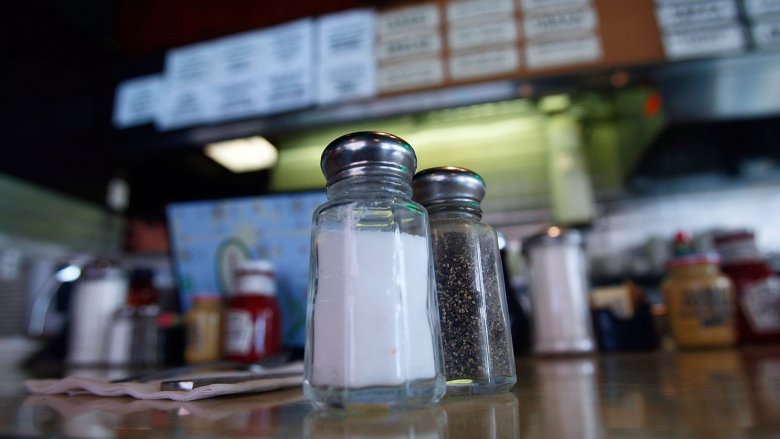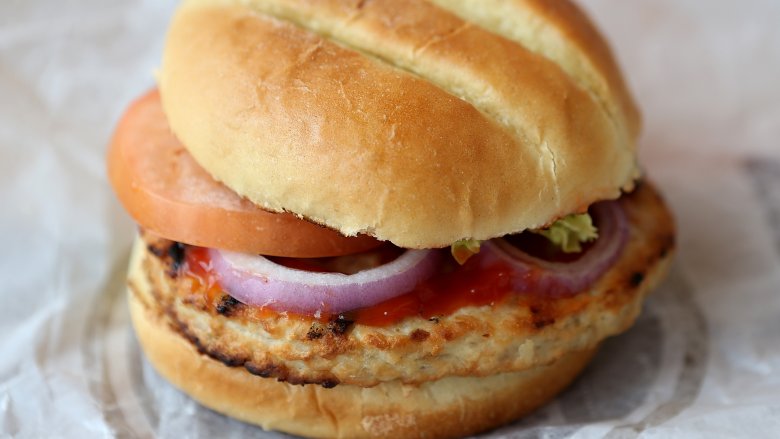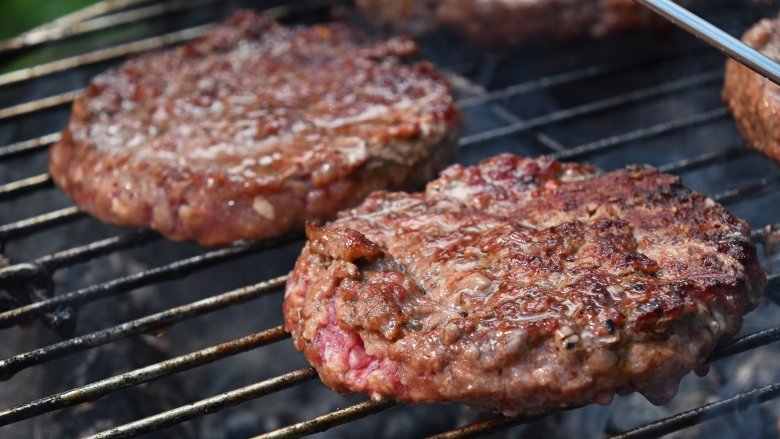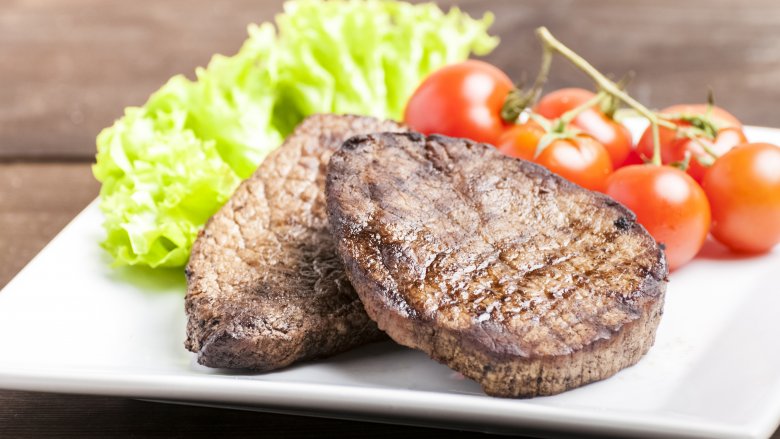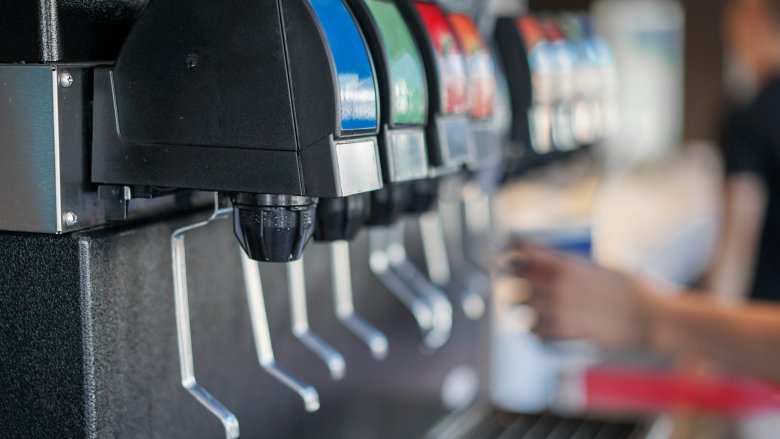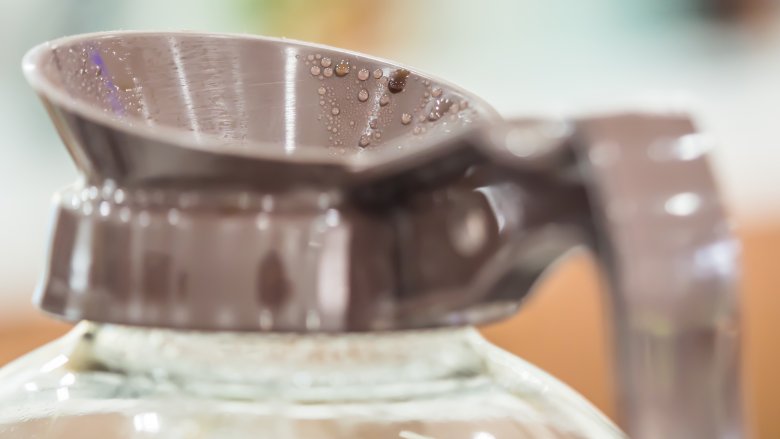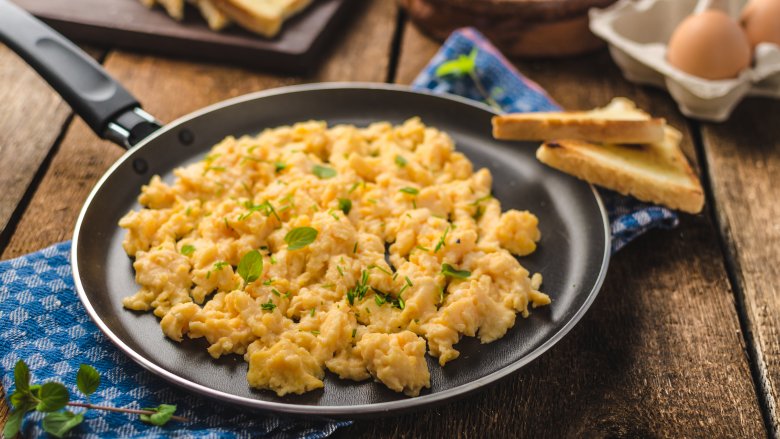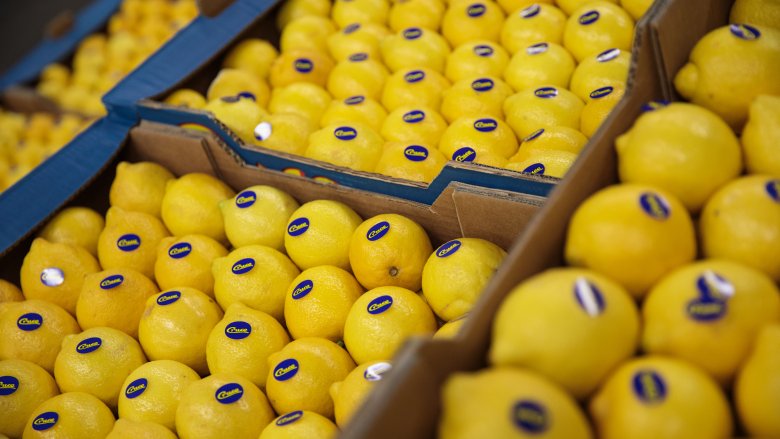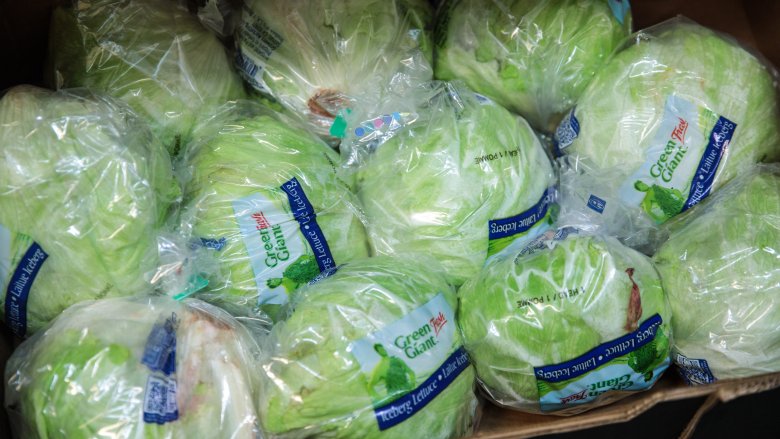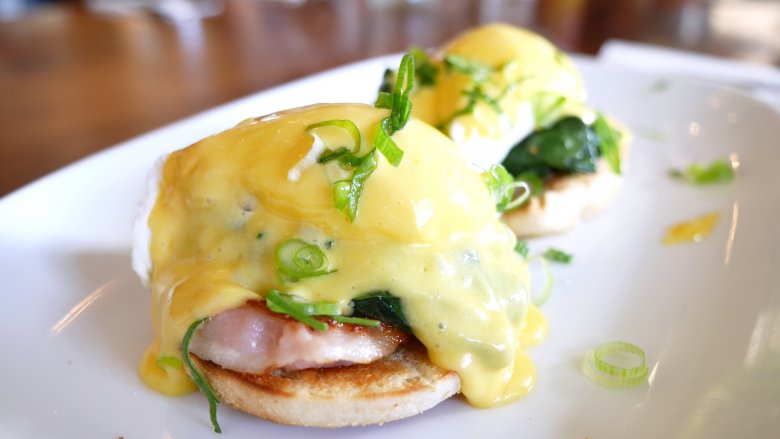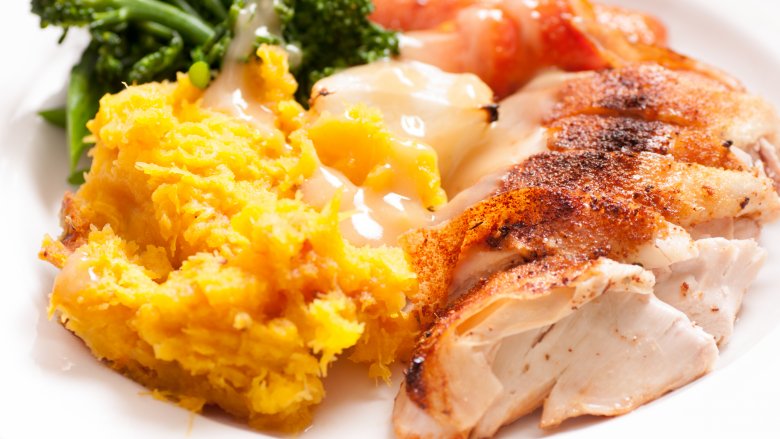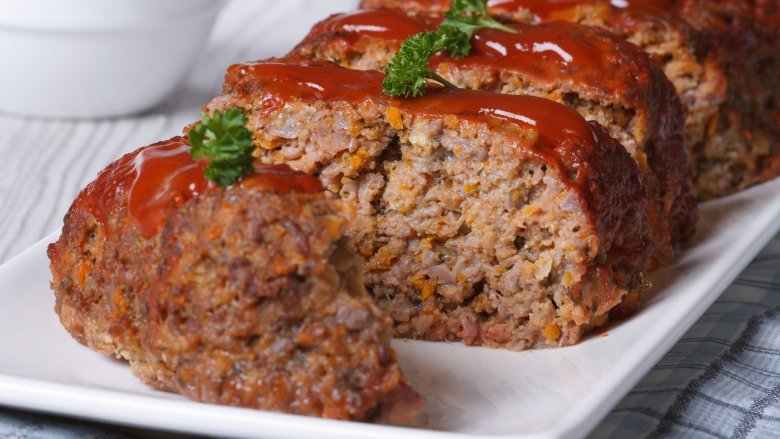Foods You Should Never Order From A Diner
Diners are like sausages: most people like them, but they'd rather not know how any of the food is made. Diners are American institutions, and sometimes there's nothing like the brilliant burger or excellent eggs you'll find at one, but they also have the same drawbacks as any other restaurant. They're trying to get your food out to you as soon as possible, but they're also trying to keep costs down to survive in a difficult industry. Because of these two factors, sometimes what you're eating can be pretty gross without you realizing it.
If you don't have a strong stomach and don't want to hear about fecal bacteria being found in food, sauces being left out for hours on end and chefs disguising bad meat with sneaky tricks, look away now. For the rest of you, keep reading to find out which dishes you might want to skip at your next visit to a diner.
Turkey burgers
For the dieters among us, turkey meat is a perfect way of eating the food we love while remaining health-conscious. However, that turkey burger could be way worse for you than even the fattiest beef patty.
Sure, it may have fewer calories, but it also could contain traces of disgusting or harmful bacteria. One report found 60 percent of the packages of ground turkey tested contained E. coli bacteria, which can lead to two weeks of stomach cramps, vomiting and diarrhea. It also found that more than half contained fecal bacteria. Although cooking will kill some of these bacteria, only boiling completely kills E.coli. Which will make your turkey burger safe, but will also make it pretty unappetizing.
Medium-rare beef burgers
In general, you should never order a burger, turkey or not, at anything less than medium-done. If you don't, you might end up with a burger full of bacteria.
Whereas bacteria tend to live on the surfaces of meats and fish, when that meat is ground you're grinding in the surface bacteria as well. This makes undercooked burger more dangerous than undercooked steaks, as a Consumer Reports study showed in 2015. To kill these microbes, meat must be cooked to 160 degrees Fahrenheit, the temperature of medium-done meat.
Well-done steaks
Though burgers are at their best medium or above, you definitely want to order your steaks with a lot less sizzle than that. A well-done steak is often a chance for a kitchen to get rid of bad cuts of meat, or meat that's been hanging round for a while.
Diners are businesses, and this means it's their aim to make money. Lawsuits from poisoned patrons are big money-burners, so restaurants are forced to use fresher cuts of meat when cooking them to riskier temperatures. They also want to save money, however, so any leftover meat can be given to diners who don't mind cooking their steaks to death. As chef Justin Croft noted, "People who prefer their steaks well-done are a godsend...because overcooking is the best way to cover up anything foul."
Drinks and ice from a soda fountain
Though you might expect meat and fish to be the most potentially gross things in a diner, a poorly maintained soda fountain can be home to its own horrors too.
A test of soda fountains in Virginia found nearly half of them were contaminated with bacteria that could come from fecal matter. Also, sodas from these machines were found to contain both E. coli bacteria and antibiotic-resistant microbes. That doesn't exactly quench your thirst, does it?
Even if the drink dispenser looks pretty clean itself, you definitely want to order your soda without ice. As one diner worker confessed, "Those freestyle soda machines almost always have mold up in the ice chute unless the chute is fully taken out and the inner bit actively scrubbed every night, which I would not trust is actually done regularly anywhere."
Decaf coffee
According to one waitresses, whether your coffee is decaf or not depends on how busy the restaurant is, and how busy your server is. Regular coffee and decaf are two identical-looking liquids, and unless you're a 100 percent sure which is which, it is easy to get them mixed up.
This means that past a certain point, either every coffee is going to be decaf, or every coffee will be regular coffee. As a waitress admitted to Reader's Digest, "in most restaurants, after 8 p.m. or so, all the coffee is decaf because no one wants to clean two different coffeepots." In other dining spots, the opposite is true.
So what should you do? As another waitresses said in an interview, "The thing about coffee is that, it might be decaf, but it might not be decaf... if you really can't have caffeine, just don't get coffee."
Scrambled eggs
Speaking of things that might not be what they seem, sources revealed diners often use powdered eggs when making pretty much any egg dish where there isn't an obvious white and a yolk. Powdered eggs are a lot cheaper, and most customers can't tell the difference.
This is true of most if not all diners, from the fanciest joints to the dreariest dives. Waiter Jake Blanton noted "even at the best breakfast buffet in the world, 99 times out of 100, the big pan of scrambled eggs is made from a powder."
If you have no problem eating powdered eggs as long as they taste good, then go right ahead, but those with allergies may want to be wary. As a 2015 article said, "dried eggs also contain additives and other artificial ingredients. Among those ingredients are often fillers like gluten, which can be a problem if you are gluten intolerant."
Lemon wedges in your drink
"Ice and a slice" is a classic way to serve any cold drink in a cafe or diner, but those lemon wedges can be some of the most bacteria-ridden things in any restaurant.
Rarely washed, usually left out on the side and handled by many people with different levels of hand hygiene, it's no wonder that a recent study found 70 percent of lemon wedges sampled from 21 restaurants were contaminated with microbes. So next time you order a soda, you may want to give the garnish a miss.
Iceberg lettuce
Fun fact: a quarter of all food-borne illnesses are caused by prepackaged salad leaves that people don't wash properly.
Although the salad leaves you will be served in a diner are far more likely to have been properly washed, iceberg lettuces often hold bad bacteria. As they are around 98 percent water, this makes them perfect carriers of waterborne diseases, which can breed happily in all the folds of the lettuce leaves. Plus, because they're never cooked, these microbes aren't killed with heat.
Brunch food
For many of us, a weekend isn't complete without brunch, but for chefs it's a chore, with cooks having to make the same simple dishes for hours on end.
That's why, as Anthony Bourdain wrote in his classic book Kitchen Confidential (via The Guardian) "Cooks hate brunch. Brunch is punishment block for the B-Team cooks, or where the farm team of recent dishwashers learn their chops." He also calls it "an open invitation to the cost-conscious chef, a dumping ground for the odd bits left over from Friday and Saturday nights."
In particular, he advises you to avoid ordering eggs Benedict, the classic combination of English muffins, bacon, poached eggs and hollandaise sauce. He asks, "How about hollandaise sauce? Not for me. Bacteria love hollandaise. And nobody I know has ever made hollandaise to order. And how long has that Canadian bacon been festering in the walk-in?"
Chicken dishes
Those who believe in health and their own happiness may want to order something other than the chicken the next time they drop into a diner.
The health-conscious will want to know that the Center for Disease Control have named chicken as the food most likely to give you food poisoning, with the poultry being a breeding ground for bacteria including salmonella, staph, and campylobacter which could make you seriously ill.
Apart from these potential health hazards, most chefs admit their chicken dishes are their most boring, overpriced and unimaginative plates. The mark-up on this cheap meat is high, and as one chef confessed, "there is typically nothing unique about the preparation that is worth my attention on the menu."
Meatloaf
Although an American classic, many diners may be offput if they found out what goes into a diner meatloaf.
Firstly, meatloaf has the same potential health hazard as an overcooked burger, made slightly worse by the fact that the thickness of the loaf makes it hard to cook it thoroughly in the middle.
Then again, you might be lucky if you get much ground meat in your meatloaf at all, with at least some restaurants bulking out theirs with cheaper ingredients. As one anonymous revelation said, "there's often more filler than meat, but restaurants think if they drown the dish in enough sauce and seasoning, you won't notice."
